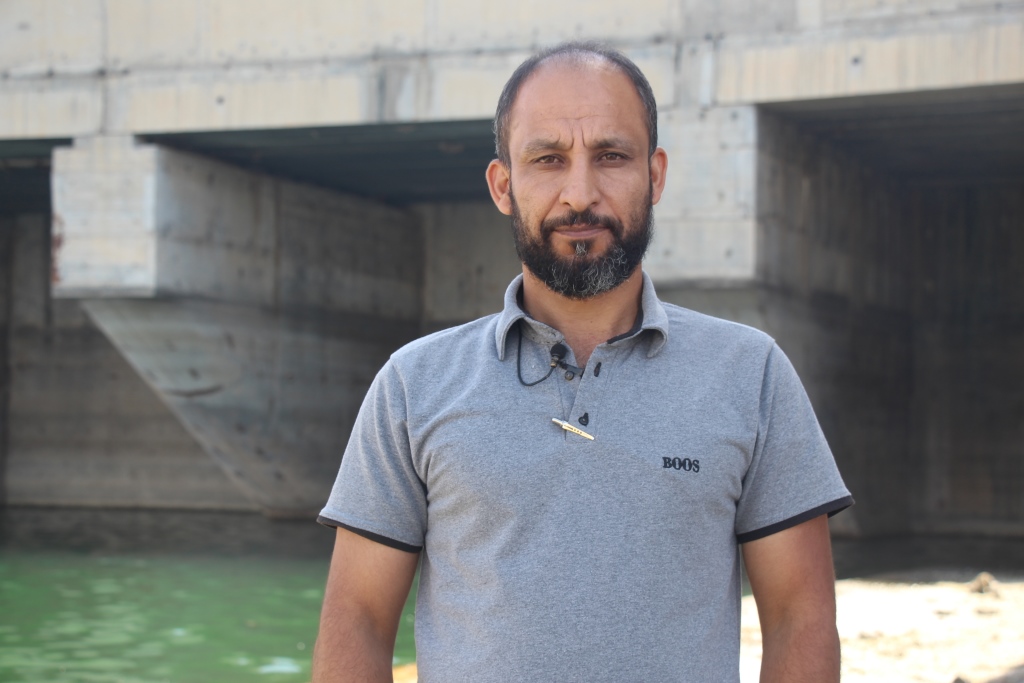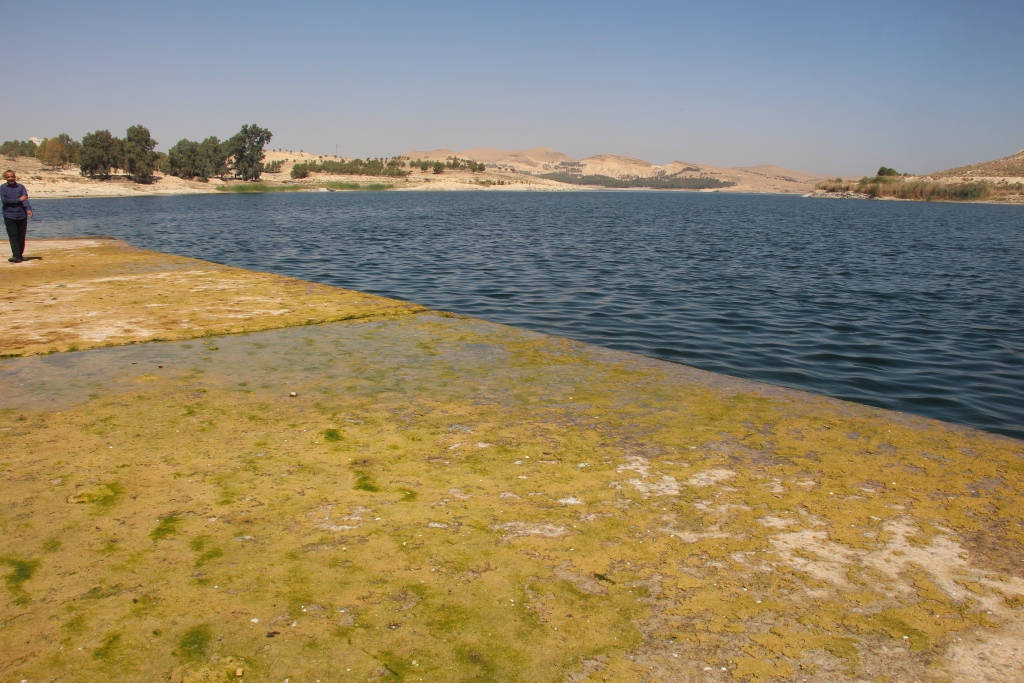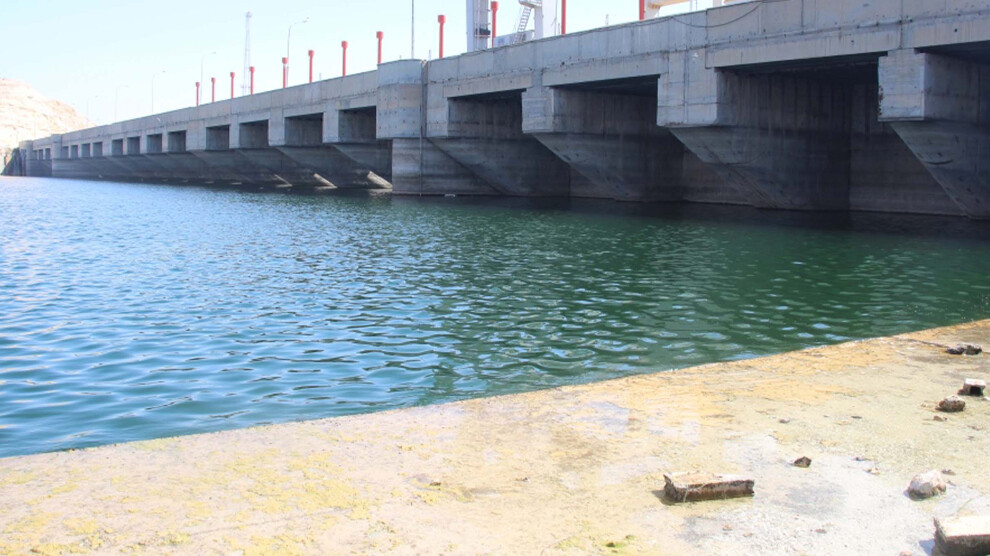The lands of North and East Syria are becoming desert due to the Turkish state which has reduced the water flow of the Euphrates River for two years. Decreased and polluted waters also cause many diseases in the region.
The invading Turkish state has been cutting off the waters of the Euphrates River for more than 2 years. Agriculture and fishing have been hard hit as a result of the diminishing water level of the river. This has resulted in a decrease in underground waters and pollution of surface waters. Decreased waters are leading to many diseases because they are polluted.
‘FOOD SAFETY CAN BE ATTAINED BY WATER’
Interviewed by ANHA, engineer Hemud El Hemadin, one of the managers of the Rojava Dam (Tishrin), said that the safe areas of North and East Syria, which have become home to many immigrants, need more water.
“When the water flow of the Euphrates River was stopped, the river turned into a lake. The water level of the river has dropped by 5 meters. It is a serious danger that the water of the Euphrates, 10 times bigger than the Tishrin Dam Lake, has withdrawn by 5 meters,” he said.

WATER REDUCTION LEADS TO INFERTILITY IN AGRICULTURAL PRODUCTION
El Hemadin said that lack of water negatively affects agriculture. “The General Administration of Dams is trying to use water properly to maintain the water level, provide water for summer projects and secure food security to some extent,” he added.
‘REDUCTION OF WATER FLOW MAY LEAD TO HUMANITARIAN CATASTROPHE’
“Due to a low water level, the dam was closed for about 16 hours. We monitor the water level daily. Because of the heat, the waters evaporate and there is no increase in the water level,” El Hemadin noted.
El Hemadin remarked that the water flow allowed by the Turkish state is not enough. “At best, the water that is released per second is 250 cubic meters, which only provides the daily drinking water. Plus, 75 cubic meters evaporates per day. About 160 cubic meters of water is used for agricultural irrigation. But the waters allowed by the Turkish state do not meet basic needs. Here, too, we have to use lakes to produce electricity,” he added.
El Hemadin noted that in the past years, 6 turbines were active to supply electricity to the region for 24 hours. Today, there are only 2 turbines and electricity can be supplied for 8 hours.

‛CHOLERA EPIDEMIC BROKE OUT DUE TO WATER REDUCTION‘
El Hemadin gave information about the cholera epidemic that has broken out in the region. “Many diseases, especially cholera epidemic, one of the most dangerous infectious diseases, have broken out under the current conditions. This disease had not existed for a long time. The epidemic has reappeared as the Turkish state has reduced the river waters and the level of the lakes is decreasing.”
El Hemadin underlined that stagnant waters help the spread of bacteria, viruses and epidemics. “As the waters are decreasing, pollution is increasing.”
“Pressure should be put on the Turkish state for the release of water. In order to do so, we are trying to communicate with the international community and humanitarian organizations,” El Hemadin concluded.

